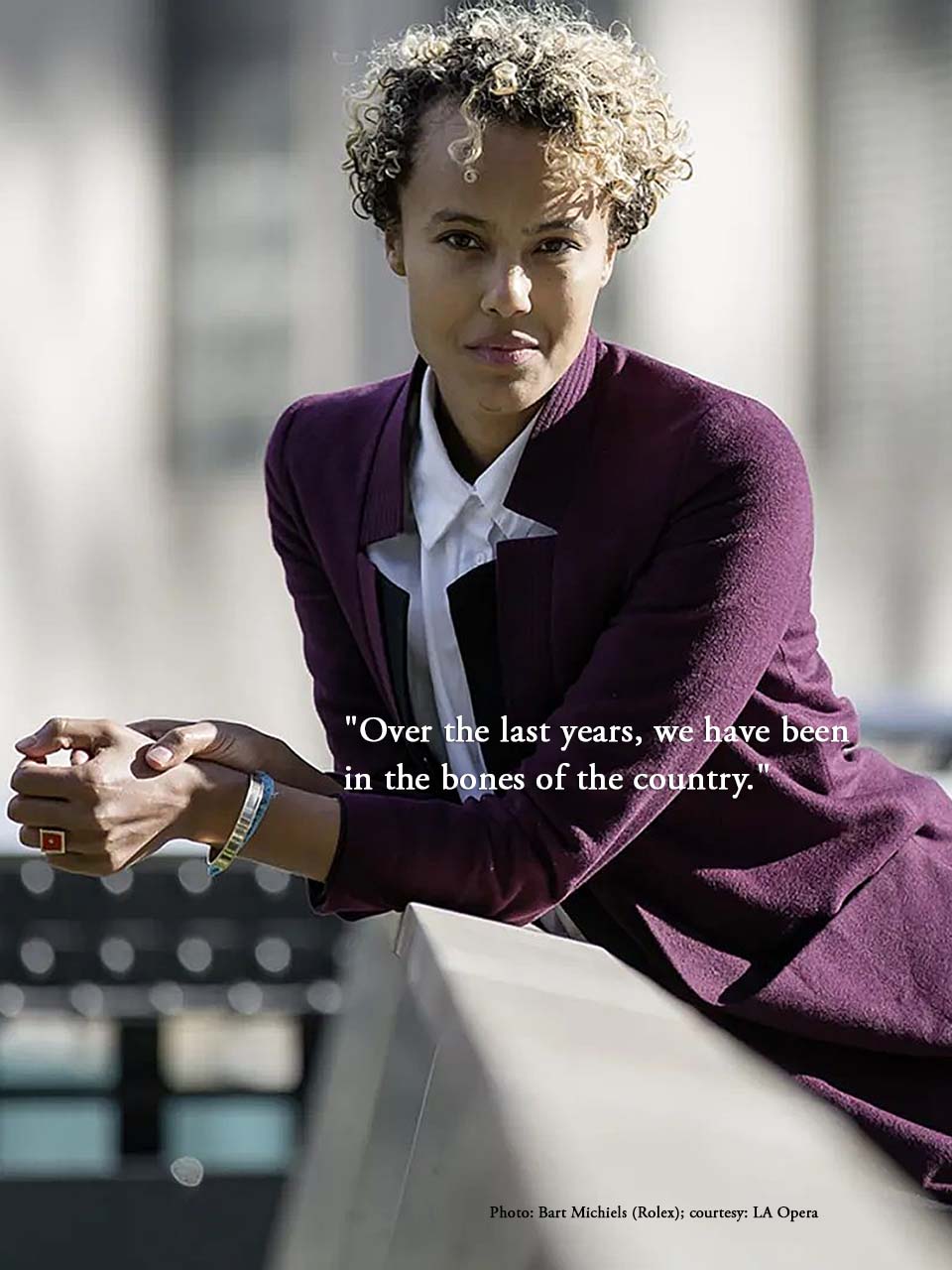Kaneza Schaal: Stage Director

Kaneza Schaal is a multi-award-winning New York City-based artist working in theater, opera, and film. Her work has been featured worldwide and includes such venues as: the Contemporary Arts Center in New Orleans; Cairo (Egypt) International contemporary Theater Festival; ABM’s Next Wave Festival; Walker Arts Center; The Kennedy Center; REDACT; Holland Festival; Center Pompadour (Paris); Royal Lyceum Theater Edinburgh, and the Whitney Museum and MoMa in New York City. Schaal is also an arts-in-education advocate.
“Over the last years, we have been in the bones of the country. The bones of our own psyches. And we have been in the bones of our industry, of opera, of what it means to gather and share breath. The opera we share with you touches all these bones: the story of Omar lbn Said, a Fulani man, forced to the United States and enslaved, literate before stolen from his home in West Africa, and author of an autobiography.
The West has a fantasy of its singularity, it imagines itself as consistent and fixed. Opera lost itself to that lie. Tonight, we return the opera to itself. A form built on hundreds of years of cultural exchange, sonic exchange, formal and aesthetic with “others.” A form dependent on many different kinds of artists teaming up. A form built of hybridity. Perhaps one of the only places big enough for Said’s journey, the contradiction, the violence, the holiness, the omissions, the terror, and the triumph.
Slavery, of course, existed before people were torn from their homes in West Africa at gunpoint and enslaved in the United States. The institution of American Slavery wrought new violences as an institution of language. American Slavery created and named a permanent condition attached to your body. The ferocious clarity in American Slavery on the power of language, was such that one of the most sacrosanct laws was that you could not teach enslaved people to read. Or write. And here, we have a text! From Omar lbn Said. Written by Omar. An Islamic scholar who was literate before mercenaries enslaved him. His autobiography is the prayer from which the music and words you hear tonight were created. The glory and triumph that his words exist, even if generated under duress, is holy.
We gather to tell you Said’s story through the contest of languages in his life, spiritual languages, cultural languages, spoken and written languages, the language of materials like wood and fabric. And ultimately, his holding of all these languages simultaneously brims with resistance, omission, refusal, and reincarnation.
Listening to the story of Omar lbn Said tonight, let us begin resetting the bones.” — Kaneza Schaal
